Abstract
The 7-year IQ scores (WISC) of 116 white and 143 black nonmalformed twins of known zygosity and placental type were ascertained from the NINCDS Collaborative Perinatal Project (NCPP). The type of chorion and zygosity had no significant effect on the mean IQ or among-pair variation. In white monozygotic twins, however, analysis of variance revealed a significantly greater within-pair mean square for dichorionic twins than monochorionic twins. On the other hand, the white dichorionic monozygotic (MZ) and dizygotic (DZ) within-pair mean squares were quite similar. These findings were not evident in blacks for either of the within-pair comparisons. In addition, estimates of genetic variance were dependent upon MZ chorion type in both races. These data suggest to us that (1) in white twin pairs dichorionic placentas are of greater influence than the similarity or dissimilarity of genomes with regard to intrapair IQ development, and (2) failure to consider chorion type may introduce a serious bias in the interpretation of genetic variance estimates of IQ variability.
Full text
PDF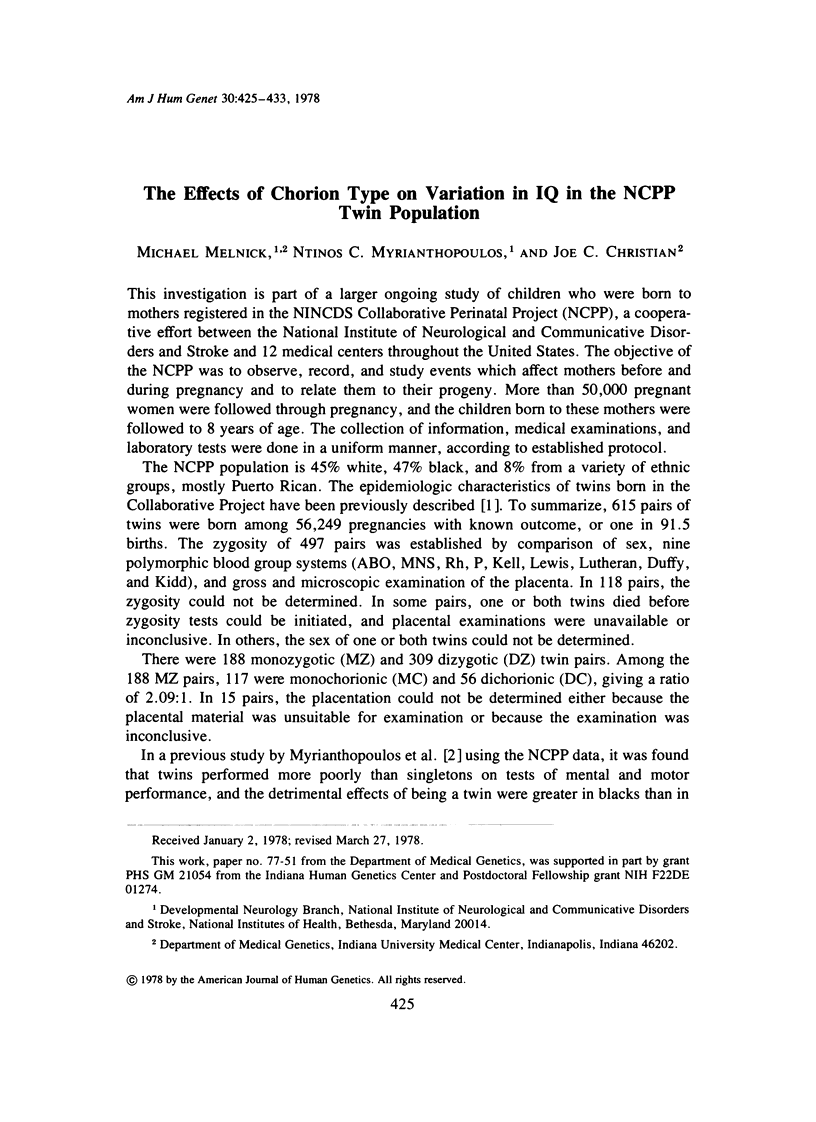
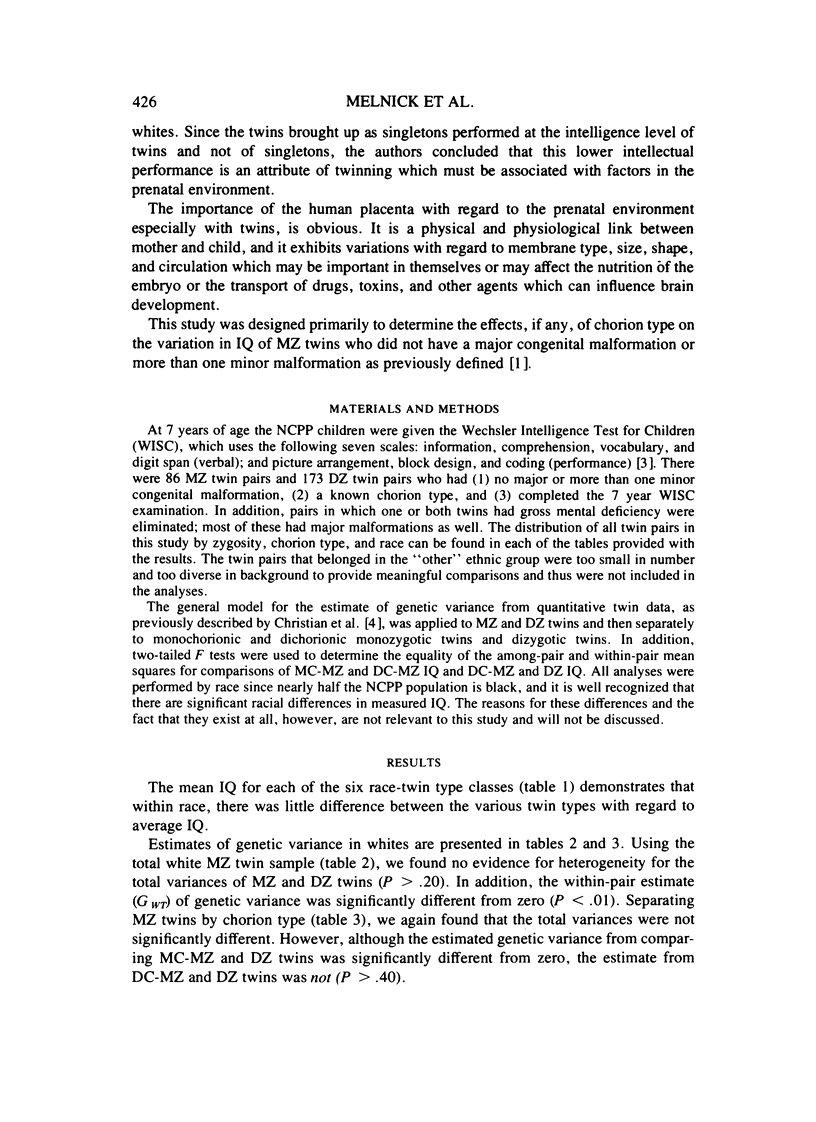
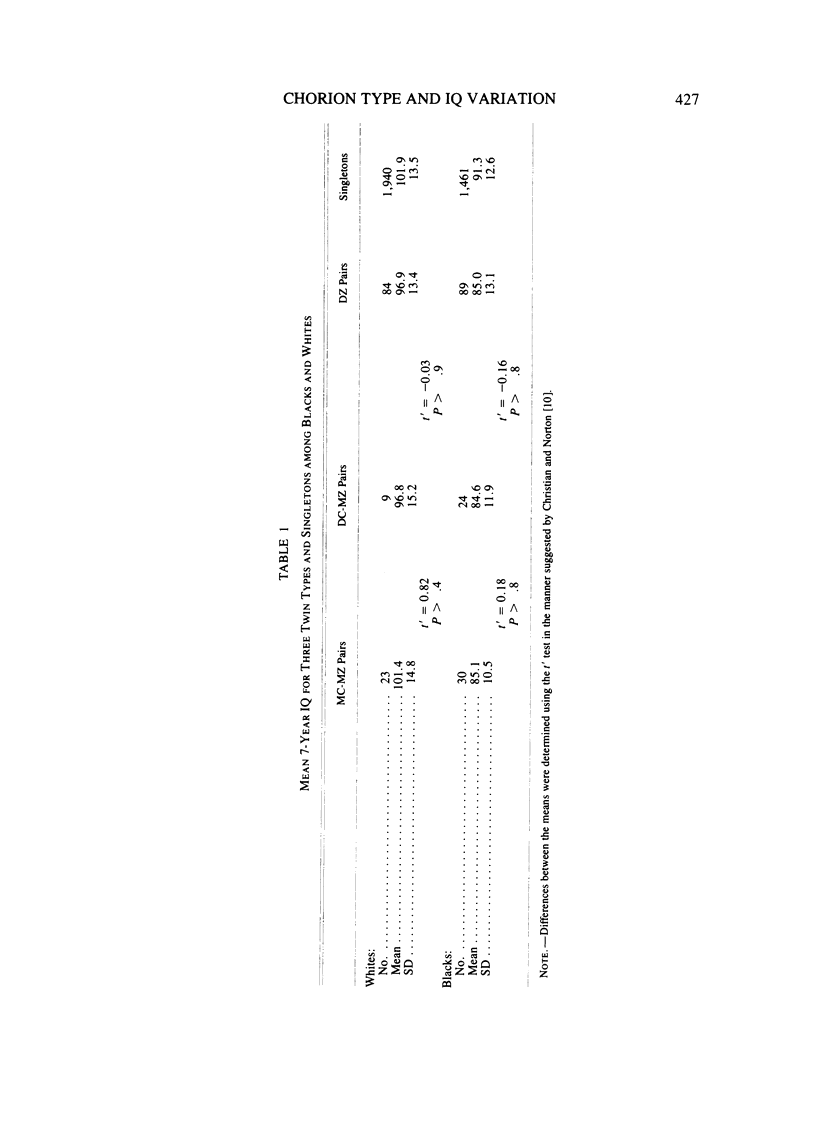
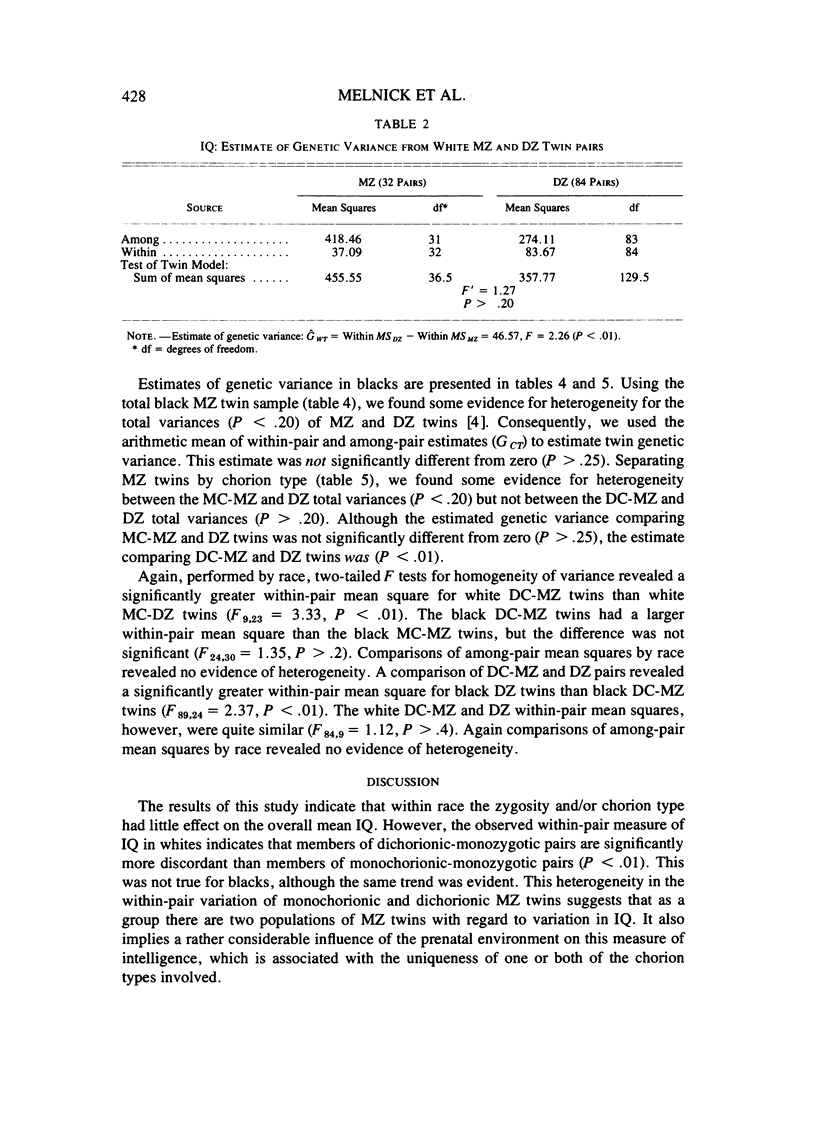
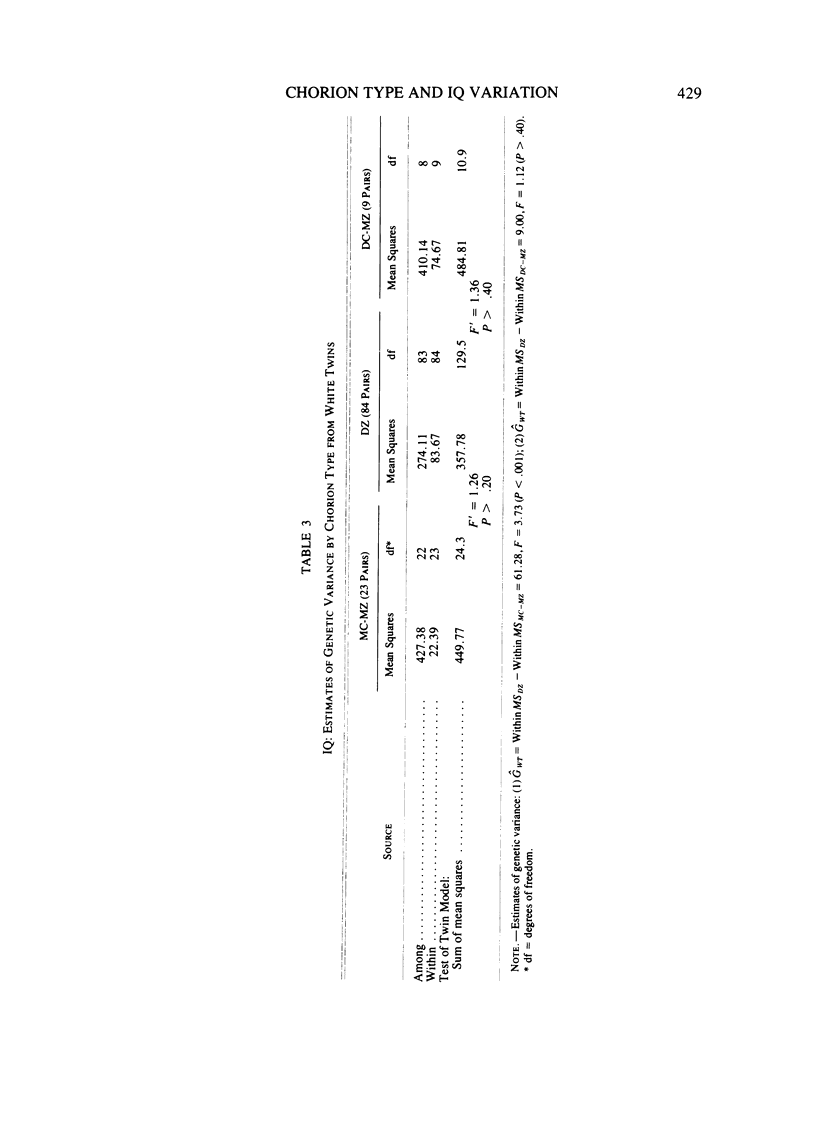
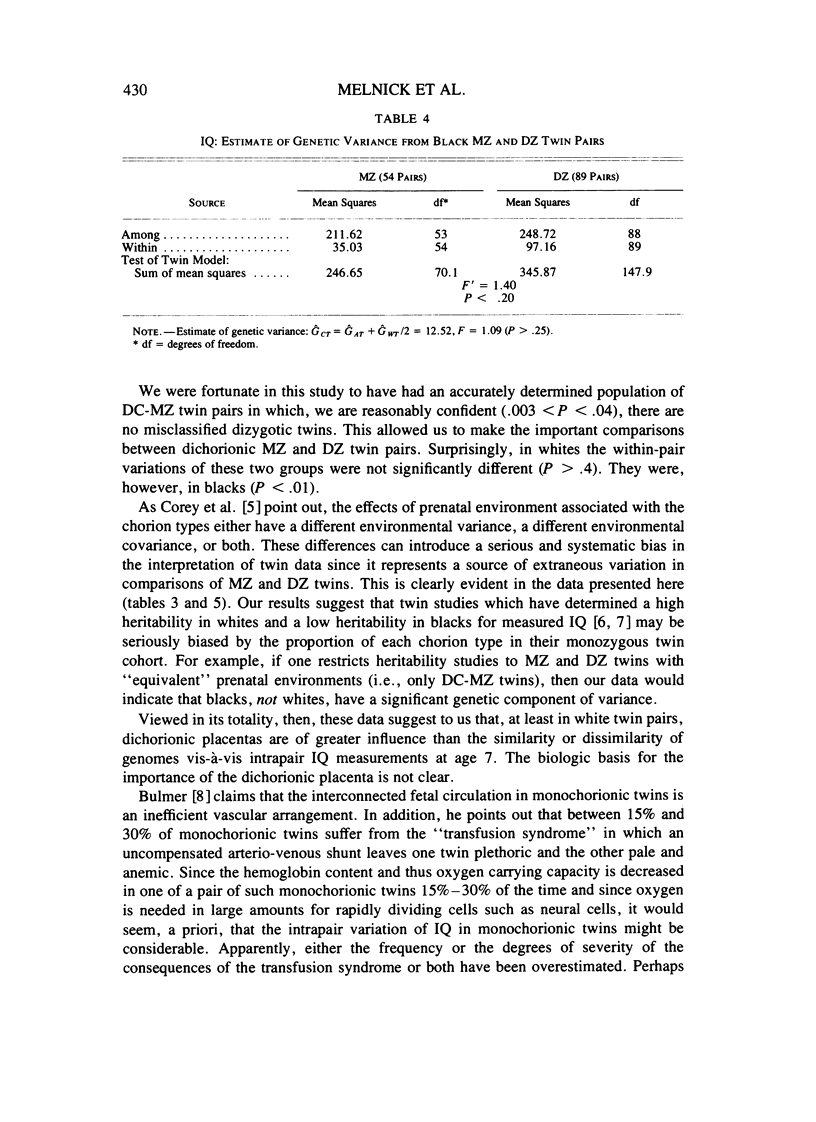
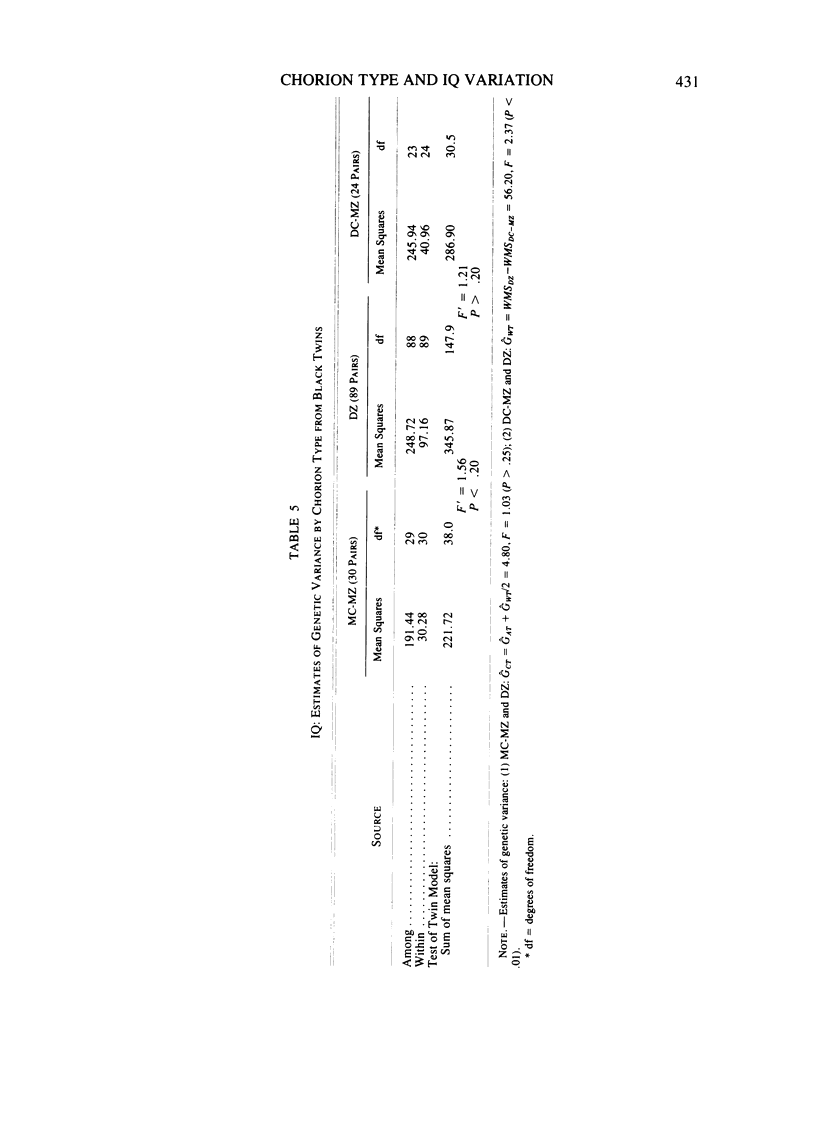
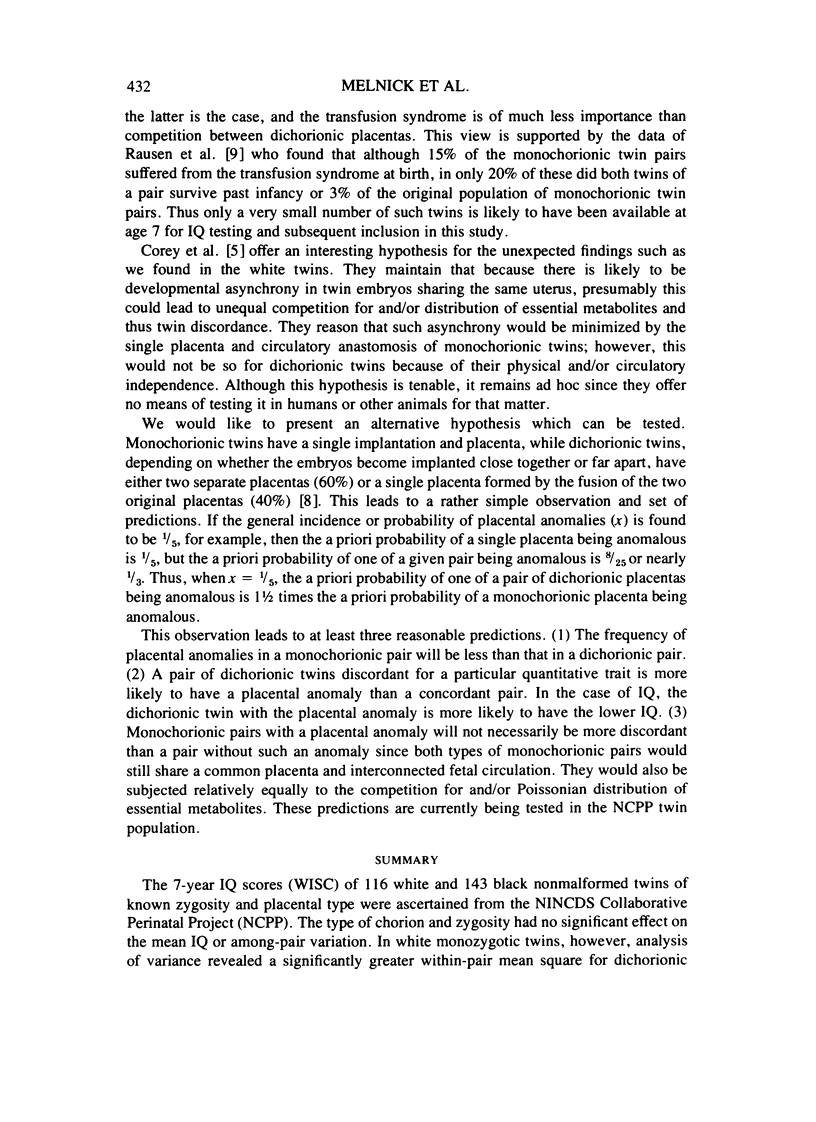
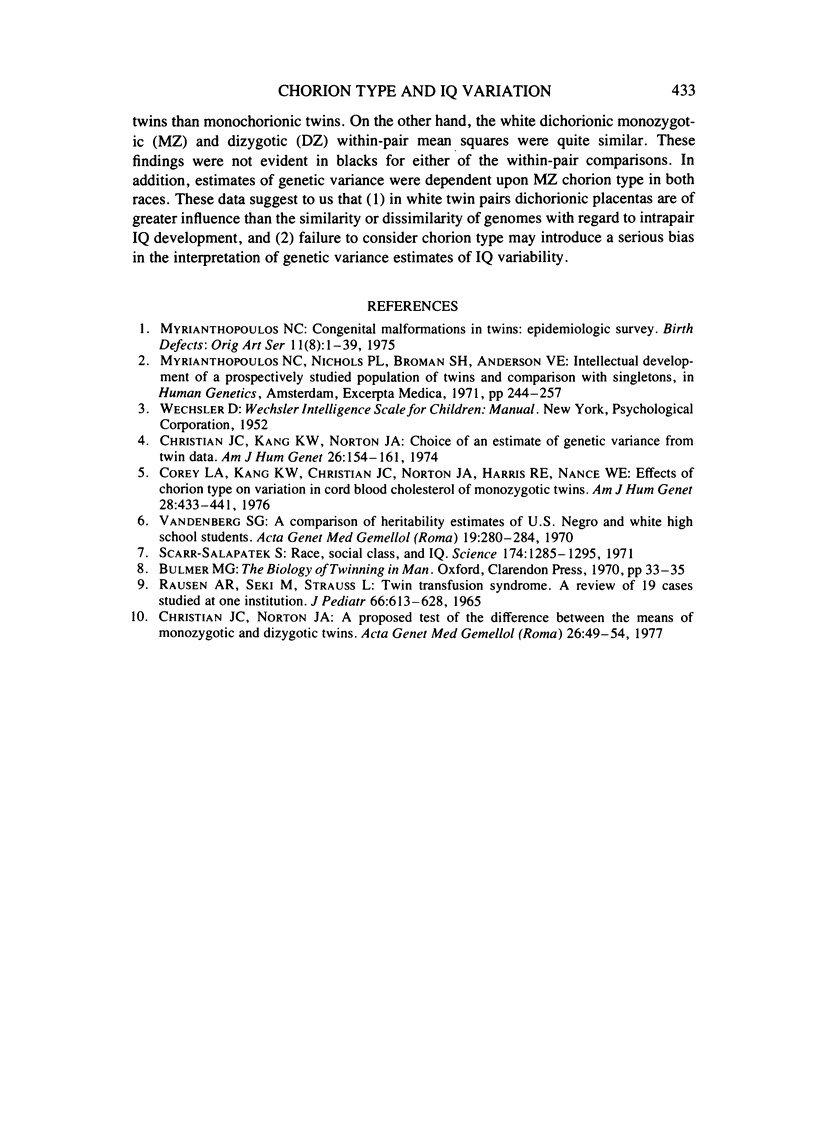
Selected References
These references are in PubMed. This may not be the complete list of references from this article.
- Christian J. C., Kang K. W., Norton J. J., Jr Choice of an estimate of genetic variance from twin data. Am J Hum Genet. 1974 Mar;26(2):154–161. [PMC free article] [PubMed] [Google Scholar]
- Christian J. C., Norton J. A., Jr A proposed test of the difference between the means of monozygotic and dizygotic twins. Acta Genet Med Gemellol (Roma) 1977;26(1):49–53. doi: 10.1017/s0001566000010187. [DOI] [PubMed] [Google Scholar]
- Corey L. A., Kang K. W., Christian J. C., Norton J. A., Jr, Harris R. E., Nance W. E. Effects of chorion type on variation in cord blood cholesterol of monozygotic twins. Am J Hum Genet. 1976 Sep;28(5):433–441. [PMC free article] [PubMed] [Google Scholar]
- Myrianthopoulos N. C. Congenital malformations in twins: epidemiologic survey. Birth Defects Orig Artic Ser. 1975;11(8):1–39. [PubMed] [Google Scholar]
- RAUSEN A. R., SEKI M., STRAUSS L. TWIN TRANSFUSION SYNDROME. A REVIEW OF 19 CASES STUDIED AT ONE INSTITUTION. J Pediatr. 1965 Mar;66:613–628. doi: 10.1016/s0022-3476(65)80125-1. [DOI] [PubMed] [Google Scholar]
- Scarr-Salapatek S. Race, social class, and IQ. Science. 1971 Dec 24;174(4016):1285–1295. doi: 10.1126/science.174.4016.1285. [DOI] [PubMed] [Google Scholar]
- Vandenberg S. G. A comparison of heritability estimates of US Negro and white high school students. Acta Genet Med Gemellol (Roma) 1970 Jan-Apr;19(1):280–284. doi: 10.1017/s1120962300025695. [DOI] [PubMed] [Google Scholar]



